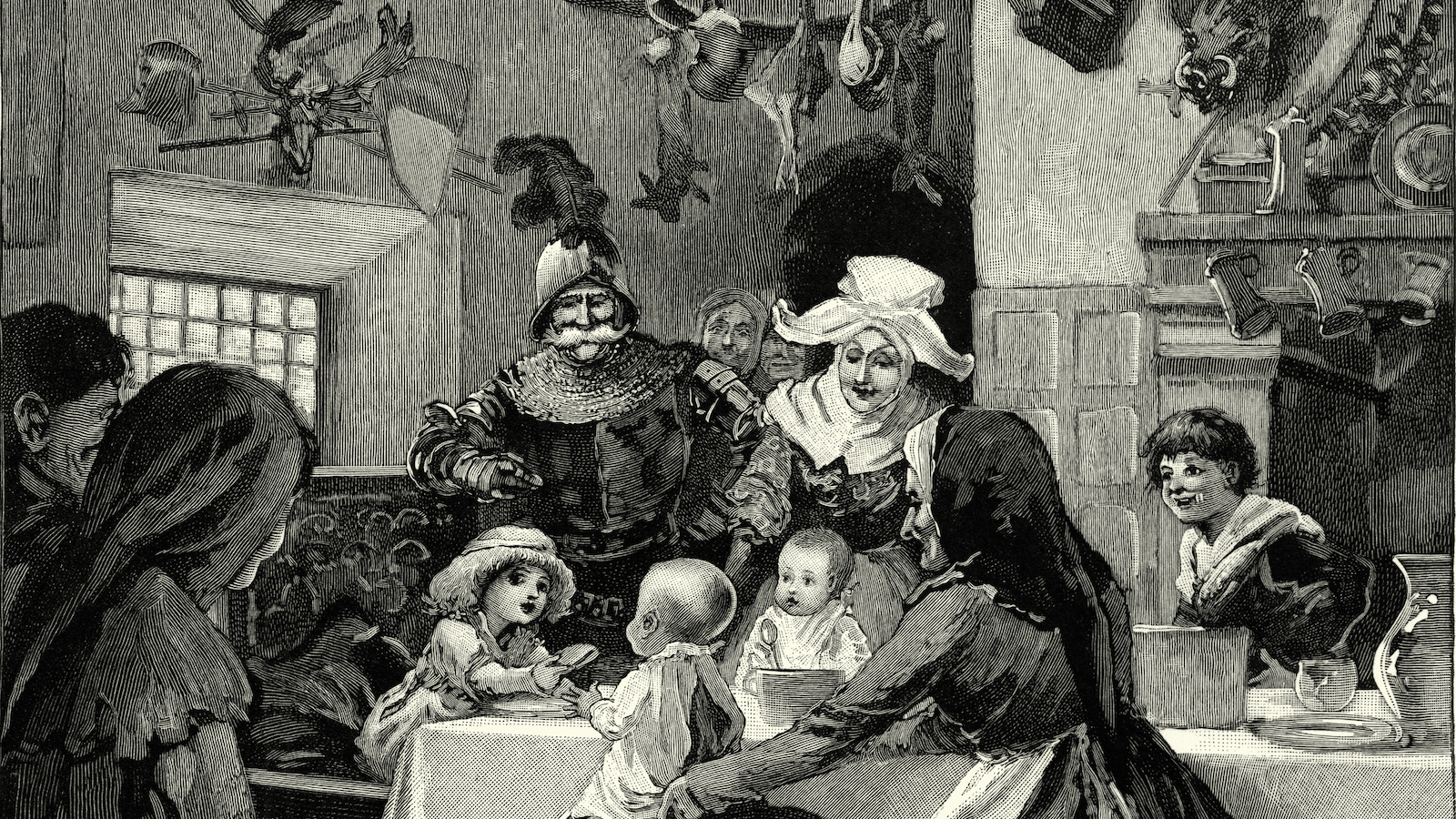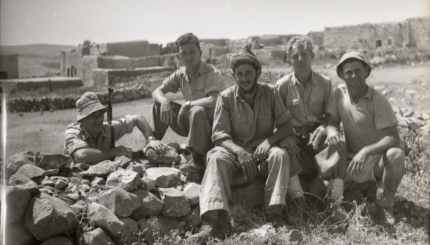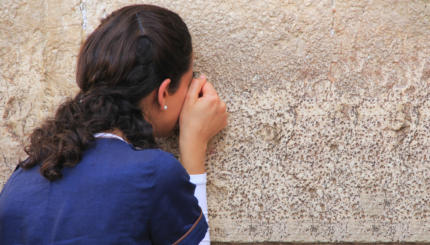For centuries, Jews in Eastern Europe generally spent Christmas Eve and Day in the safety of their homes. In certain places, Christian authorities actually prohibited Jews from appearing in public places during the Christian high holidays, so Jewish schools and synagogues were closed. In other places, Christians attacked Jews on Christmas, thus staying home was encouraged for security reasons. Fearing that Jewish students would be attacked on the way to study, rabbis prohibited Jewish students from leaving home to study Torah. Torah study was also prohibited because Jesus, in his youth, engaged in religious study; thus the medieval rabbis prohibited the activity lest it lend merit to Jesus.
Tales of Jesus
Over the centuries Jews developed customary Christmas activities. Certain East European Jews covertly read Ma’se Talui (The Tales of the Crucifix), a secret scroll containing derogatory versions of the birth of Jesus. Such legends are part of a genre of Jewish legends called Toledot Yeshu (History of Jesus). These legends first appeared in Hebrew in the 13th century (with possible earlier renditions written in Aramaic) and circulated in different versions throughout the Middle Ages. Toledot Yeshu describes Jesus as the illegitimate son of Mary by the Roman soldier Panthera. According to these tales, Jesus’ powers derived from black magic, and his death was a shameful one.
Cards & Chess
Christmas was also a popular time for Jewish card playing, which stands out in light of traditional rabbinic condemnation of gambling and betting. Indeed, in the Middle Ages many measures were devised to suppress card playing, including communal restrictions (takanot), and literary satires.
According to Israel Abrahams in his book Jewish Life in the Middle Ages, some Jews took personal vows to abstain from card playing. Examples of such oaths exist in most ethical and ritual books dating from the beginning of the 15th century. One example reads as follows:

Help us keep Jewish knowledge accessible to millions of people around the world.
Your donation to My Jewish Learning fuels endless journeys of Jewish discovery. With your help, My Jewish Learning can continue to provide nonstop opportunities for learning, connection and growth.
May this be for a good memory, Amen! At the twenty-third hour of the beginning of April, 1491, the undersigned received upon himself by oath on the Ten Commandments that he would not play any game, nor incite another to play for him, with the exception of draughts or chess, and this oath shall have force for ten full years.
Few of these strictures proved effective. Despite widely held views about gambling for money, the rabbis permitted games of chance during the long nights of Hanukkah, Purim, the intermediary days of Passover and Sukkot, and Rosh Hodesh. Generally, the rabbis frowned upon card playing in the sukkah. However, in acknowledging that people would not sit in the sukkah unless permitted such entertainment, this stricture was also relaxed.
Though ostensibly in opposition to the solemn Christian celebration of that evening, the Jewish custom of card playing on Christmas may also have been rooted in an older German custom of merrymaking during Christmas. Clement A. Miles, in Christmas Customs and Traditions, reports that card playing was a part of Christmas festivities in assorted European countries. Additionally, if study and going out in public were customarily prohibited for Jews, game playing provided them with a diversion from an evening filled with fear and dread.
Christmas may also have served as an occasion for gambling while playing chess or cards because it was not a Jewish holiday or the Sabbath, the times in which the prohibition against these games was enforced, though neither of the two authoritative books on Jews and chess entitled Chess, Jews and History and Chess Among the Jews (both translations of works by Moritz Steinschneider) mentions chess being played on Christmas by Jews. However, the author cites an allegorical fable about two sons of a distinguished man who were taken with the playing of dice or cards. The father considered these to be games that could lead his sons astray. The father then took it upon himself to teach his sons the game of chess — a game “they should only play for half an hour a day, except on Hanukkah, Purim and the intermediate days of the festival of Sukkot.” From this parable we may infer that on Hanukkah and the other mentioned holidays, chess could be played for a longer period of time. The custom of chess playing on Hanukkah must have influenced some Jews to play chess on Christmas.
The Hasidic followers of the late Rabbi Menachem Mendel Schneerson claim that a famous photograph documenting the Lubavitcher Rebbe playing chess with his father-in-law was taken on Christmas.
Names of the Day
Because Jews engaged in special rituals and activities on Christmas, they had special names for the day. Nittel Nacht was the most commons name for the holiday. The etymology of the term Nittel is ambiguous. Some have claimed it derives from the Hebrew word for “hanging” and refers to Jesus’ crucifixion; others believe that is has Latin roots. Other names for Christmas were tied to particular geographic regions and were often a variation of the common local name for the holiday. Jews in Alsace, Galicia and Western Poland used Vay Nahcht (Woe Night), a name parodying the German Wei Nahchten (Holy Night). Certain names were descriptive in character. The Jews in Southern and Central Europe called Christmas Eve Goyim Nahcht (Gentiles’ Night), Tole Nahcht (Night of the Crucified One), and Yoyzls Nahcht (Jesus Night).
READ: Silent Night: How Hasidic Jews Observe Christmas Eve
Certain names invented for Christmas transcend being merely descriptive in character and actually denote the feelings of fear Jews harbored about Christmas Eve. In Galicia and Ukraine, Christmas was referred to as Finstere Nahcht (Dark Night), Moyredike Nahcht (Fearful Night), and Blinde Nahcht (Blind Night).
Today, in America, Christmas is not a fearful time, and most American Jews have good relations with their Christian neighbors — and certainly lack the impetus to read the antagonistic Toledot Yeshu. Still, the practice of calling Christmas by the name Nittel persists in certain Yiddish-speaking Orthodox communities in the United States, especially in New York communities in Brooklyn, Monsey, and Kiryat Joel. The idea of not studying Torah on Christmas still exists in some of these communities as well. Indeed, amongst the Satmar Hasidim, one term used for Christmas is Bitel Nahcht, a reference to Bitul Torah–temporarily suspending Torah study.
Hanukkah
Pronounced: KHAH-nuh-kah, also ha-new-KAH, an eight-day festival commemorating the Maccabees’ victory over the Greeks and subsequent rededication of the temple. Falls in the Hebrew month of Kislev, which usually corresponds with December.

Help us keep Jewish knowledge accessible to millions of people around the world.
Your donation to My Jewish Learning fuels endless journeys of Jewish discovery. With your help, My Jewish Learning can continue to provide nonstop opportunities for learning, connection and growth.
Hasidic
Pronounced: khah-SID-ik, Origin: Hebrew, a stream within ultra-Orthodox Judaism that grew out of an 18th-century mystical revival movement.

Help us keep Jewish knowledge accessible to millions of people around the world.
Your donation to My Jewish Learning fuels endless journeys of Jewish discovery. With your help, My Jewish Learning can continue to provide nonstop opportunities for learning, connection and growth.
Purim
Pronounced: PUR-im, the Feast of Lots, Origin: Hebrew, a joyous holiday that recounts the saving of the Jews from a threatened massacre during the Persian period.

Help us keep Jewish knowledge accessible to millions of people around the world.
Your donation to My Jewish Learning fuels endless journeys of Jewish discovery. With your help, My Jewish Learning can continue to provide nonstop opportunities for learning, connection and growth.
sukkah
Pronounced: SOO-kah (oo as in book) or sue-KAH, Origin: Hebrew, the temporary hut built during the Harvest holiday of Sukkot.

Help us keep Jewish knowledge accessible to millions of people around the world.
Your donation to My Jewish Learning fuels endless journeys of Jewish discovery. With your help, My Jewish Learning can continue to provide nonstop opportunities for learning, connection and growth.
Torah
Pronunced: TORE-uh, Origin: Hebrew, the Five Books of Moses.

Help us keep Jewish knowledge accessible to millions of people around the world.
Your donation to My Jewish Learning fuels endless journeys of Jewish discovery. With your help, My Jewish Learning can continue to provide nonstop opportunities for learning, connection and growth.



